Checking on my Sims 🗺️📍

🌎 The Big Topic: I can see you!
iPhone users can share their locations with each other using the Find My app.
It has some practical purposes. If friends and I are meeting out at a museum, bar, or restaurant, there’s no need to text the details of our whereabouts. “Where are you?” and “I’m here,” are no longer necessary. We can see where we are on a map.
This has been especially helpful trying to find friends if we’re bar-hopping along U Street or attending a crowded festival or parade. We can rendezvous without endless texting.
Other times I open the app out of curiosity to “check on my little Sims,” as I like to say. It’s a reference to the video game series where players place their virtual characters in a virtual house and manipulate their desires and moods. The game was described as a virtual dollhouse.
Find My is not powerful enough to let me sate my friends’ hunger or to trigger their ennui remotely. If only!
This is not FOMO. I usually imagine people at home sitting on their couches or at their offices in front of a computer. Not exactly exciting stuff, but most of life is not perpetual thrills. Some of us even sleep and have jobs!
Some friends notice when I’m in the middle of my weekend Rock Creek Park stroll and joke that I’m actually cruising in the park. (I asked a park ranger and he says cruising is exceedingly rare in the park these days.)
Once when I was in Paris, a friend noted that I was near some ridiculously named place called Clown Bar.
I looked it up and it turns out it’s a highly rated restaurant that was even featured in the New York Times.
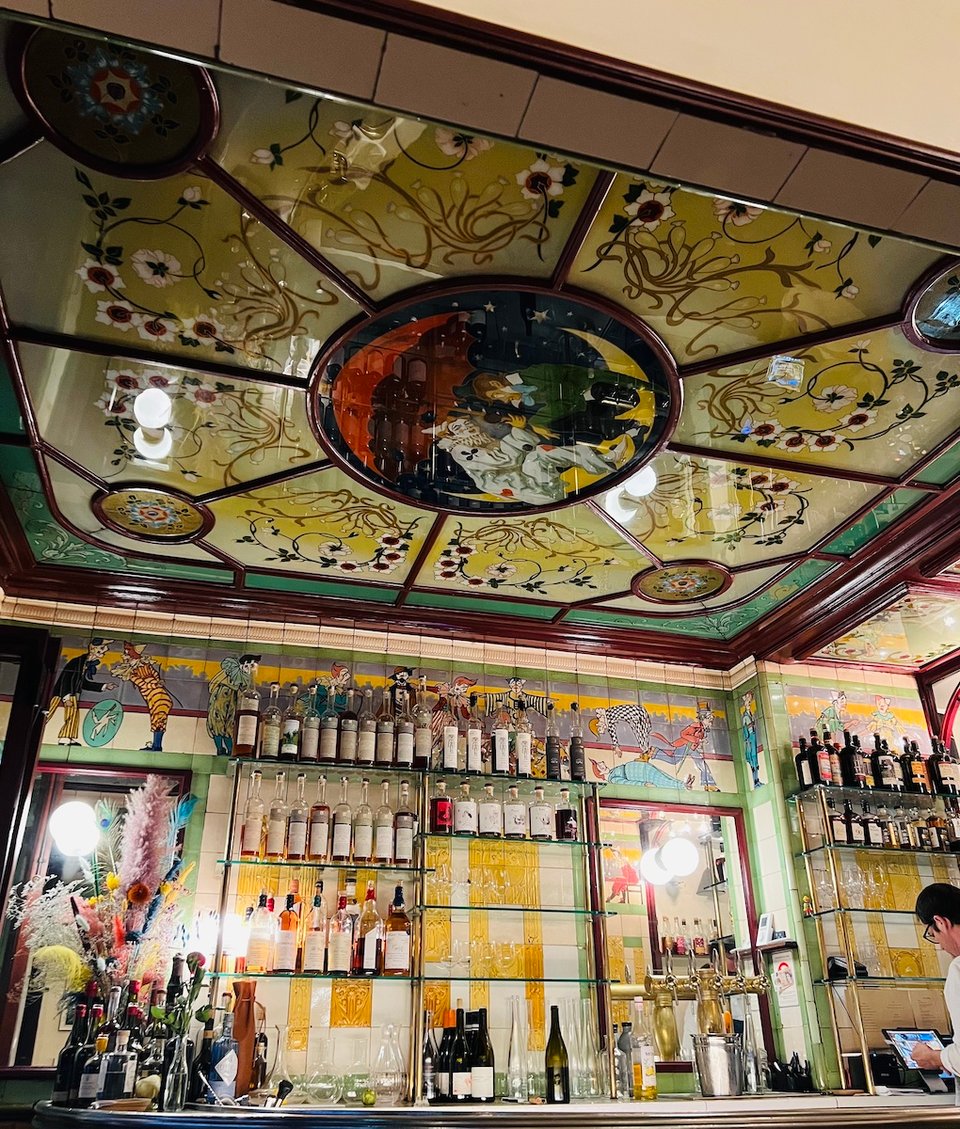
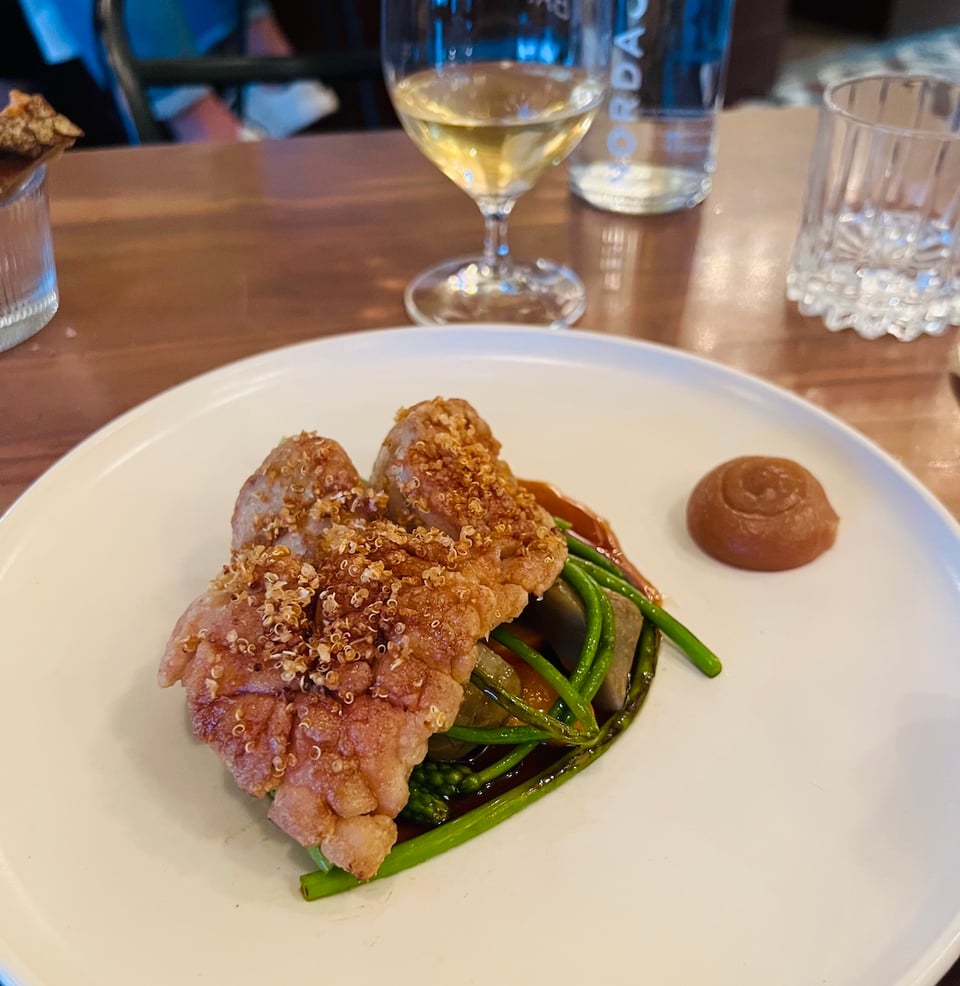
I mistranslated the menu (my French is not as good as I thought) and I inadvertently ordered calf brain, which was so tender, I assumed it was sous-vide chicken. It wasn’t until I looked into more reviews I realized I had eaten brain.
My whereabouts in Paris became a subject of mild amusement for others, but the joke led me to a serendipitous restaurant experience.
📺 The Screen
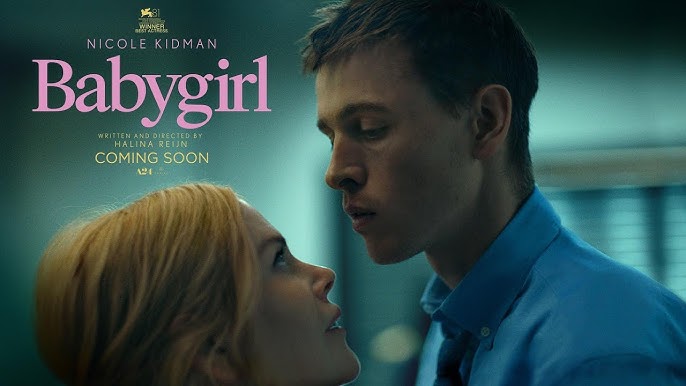
Babygirl (in theaters)
Nicole Kidman plays Romy, a successful CEO who has an affair with her rakish intern, Samuel (Harris Dickinson). Viewers see two dramas on screen: the obvious sexual harassment concerns that arise when a superior has a relationship with a subordinate and the separate minefield when a spouse look elsewhere for sexual satisfaction they aren’t getting at home.
One friend denounced it as “A reductive, conservative, and ultimately misogynistic view of sex that posits seeking pleasure and fantasy as a psychological flaw.”
Another friend said it was unintentionally funny, but not kinky enough. Another said he likes Nicole Kidman, but not in this role.
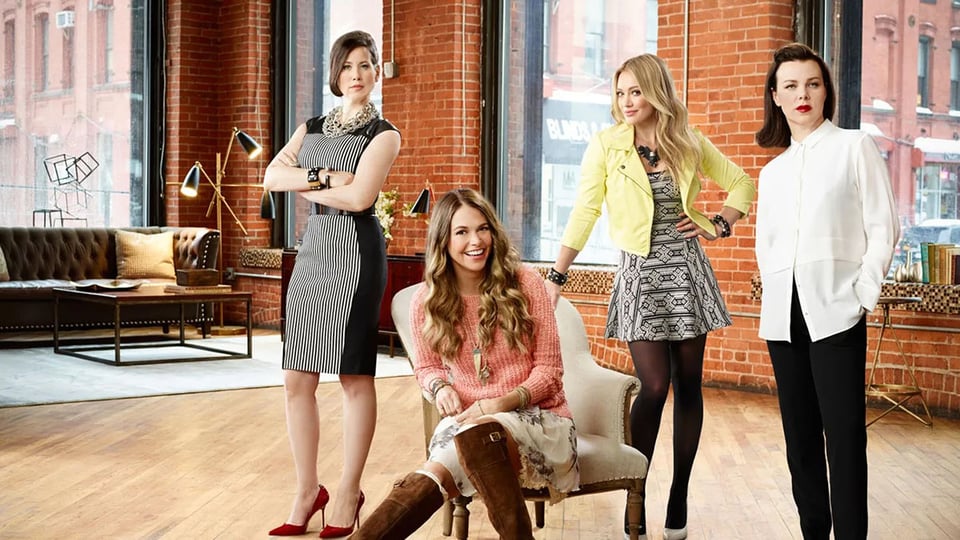
Younger (Netflix)
I finished a decade-old series about a divorced, 40-year-old mom (played by Sutton Foster), who returns to the workforce by pretending she’s 26 to land a job at a publishing house. Many of the plot lines revolve around her revealing the wisdom of her age while maintaining her youthful, naive cover to her colleagues (Hilary Duff, Miriam Shor, Peter Hermann) and her heartthrob love interest (Nico Tortorella). One episode I watched last month has a cameo by NPR host Diane Rehm!
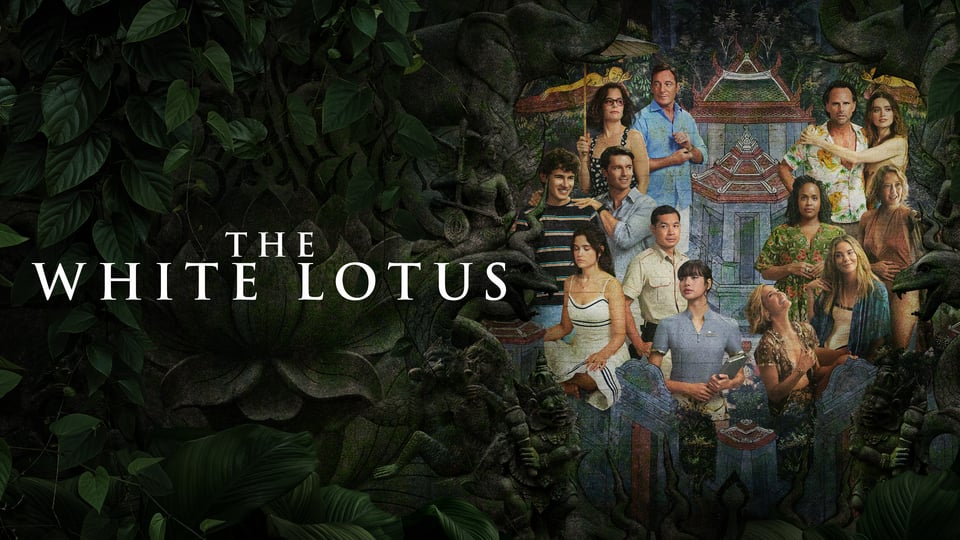
The White Lotus (Max)
The third season of this meme goldmine is set at a luxury resort in Thailand and follows the pattern of previous seasons: start with an unidentified dead body and spend the rest of the season seeing the increasingly worrying events that lead up to the death.
Be it Hawaii, Sicily, or now Thailand, White Lotus showcases the beauty of its filming locations to contrast eerily with the scheming, backstabbing, and dishonesty that unfold at the resort.
Like Anora, the series shows how the wealthy can befriend, but quickly dispose of, the people working around them.
🏆 Oscars 🏆
Anora, which I reviewed in a previous issue, swept the Oscars, picking up five of the little golden men in one night.
🚶♂️ Wandering Around Washington




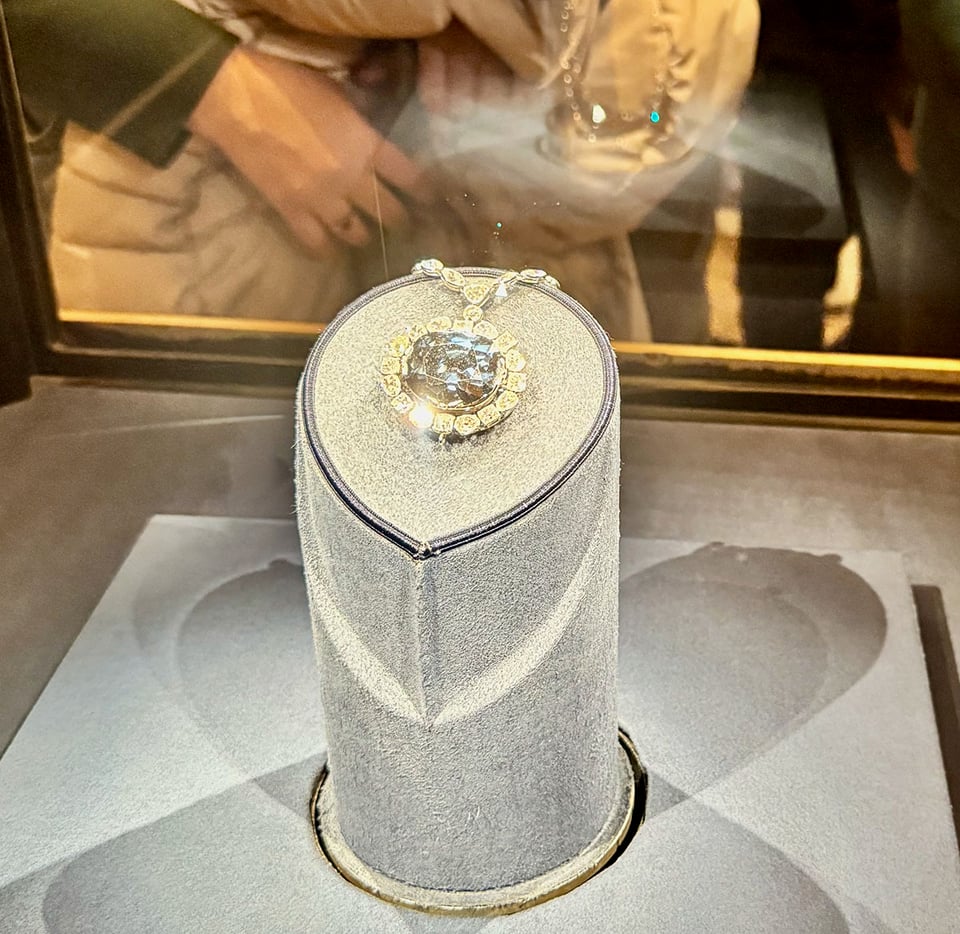

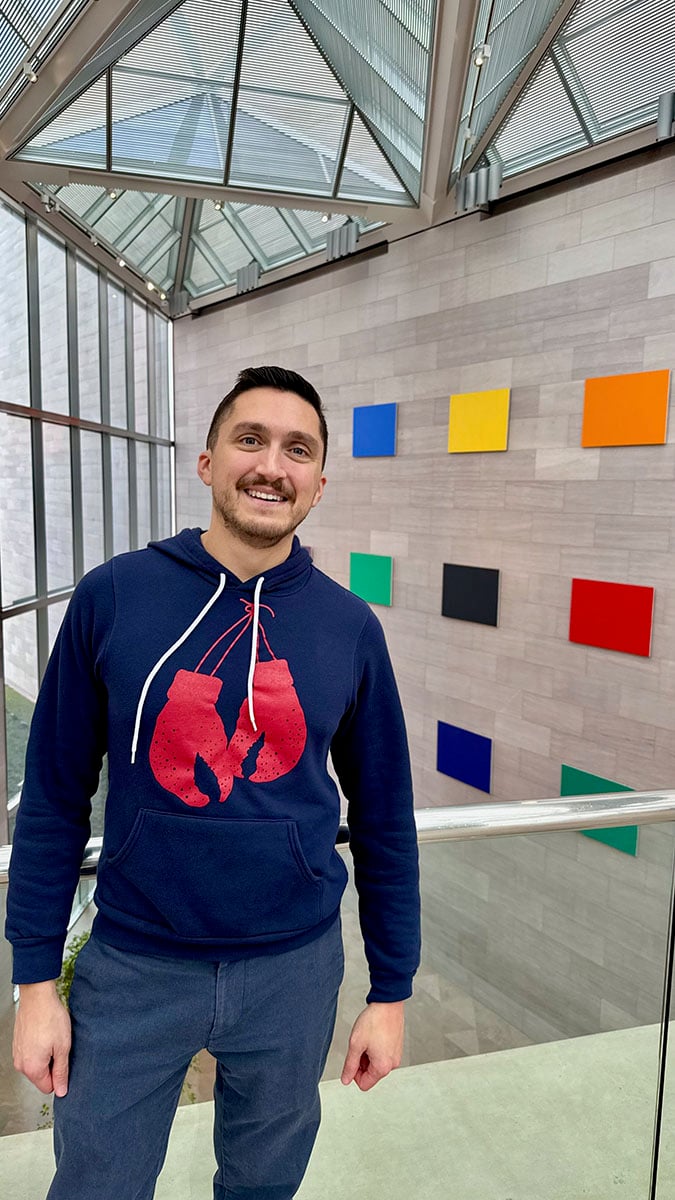
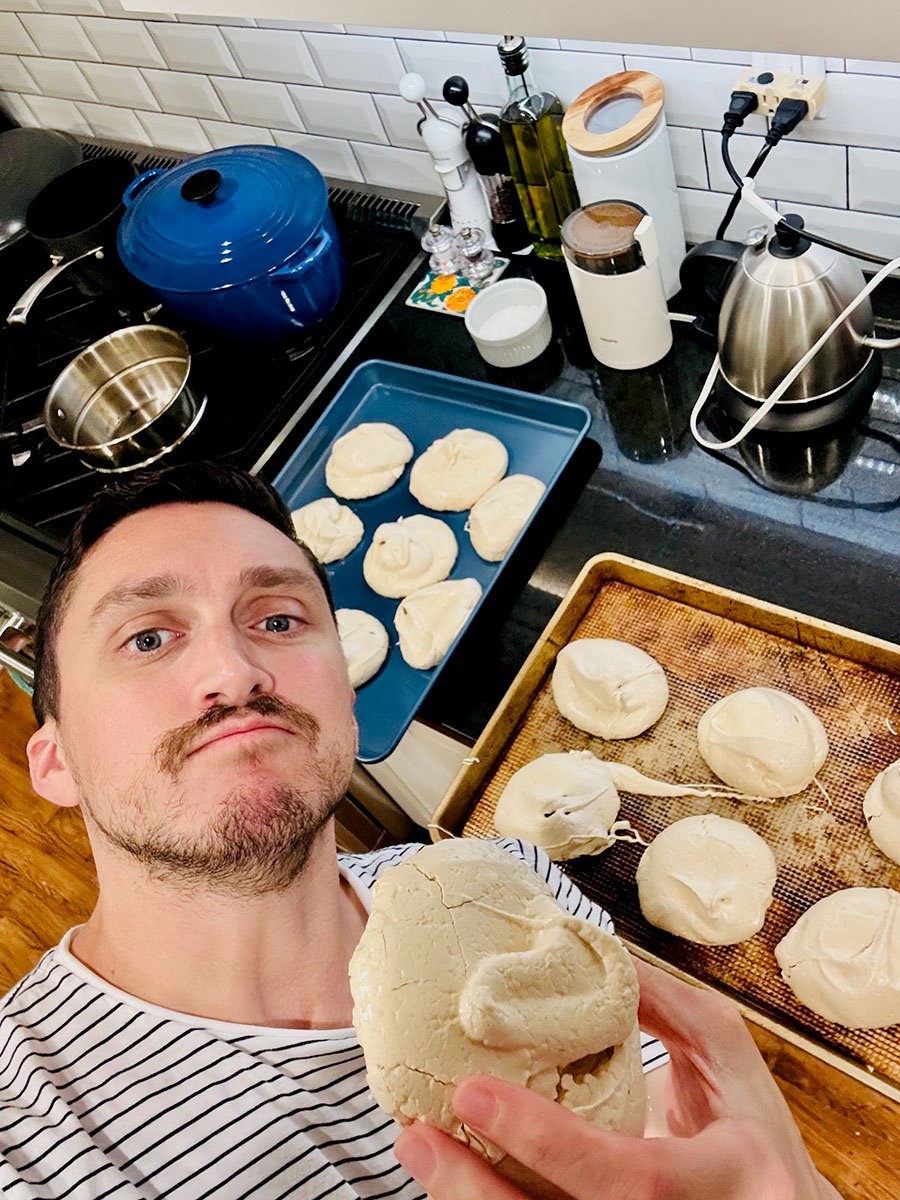
👨🍳 The Kitchen
I’ve been cooking from a new cookbook, Wafu Cooking: Everyday Recipes with Japanese Style by Sonoko Sakai. Wafu (和風) means Japanese-style, i.e. non-Japanese food cooked in a Japanese style. Sakai is a Californian of Japanese descent and has lived in Japan, Mexico, and Europe. Her cosmopolitan recipes stem from a practical approach: it was hard to get Japanese ingredients when her family lived abroad so they incorporated local ingredients by necessity, thereby unwittingly creating their own wafu kitchen.
Here are a few dishes I made:
Tonjiru

Mentaiko Spaghetti
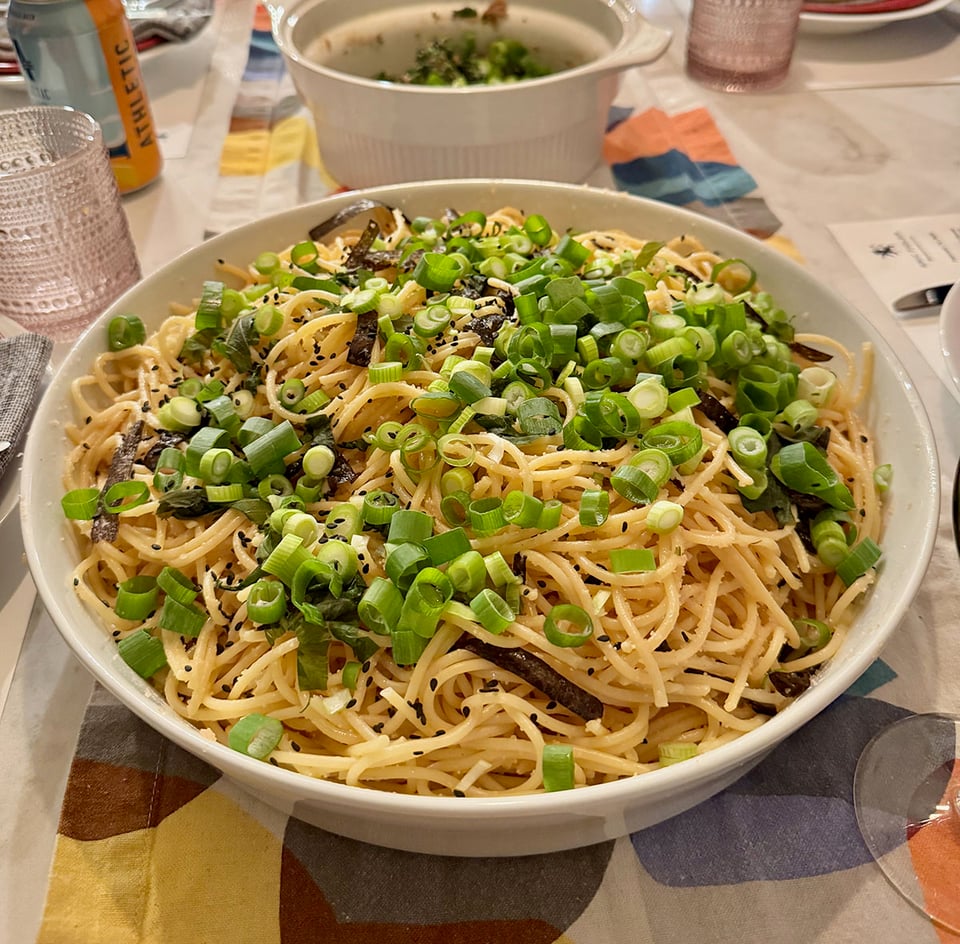
Sweet and Spicy Beef and Shirataki Stew
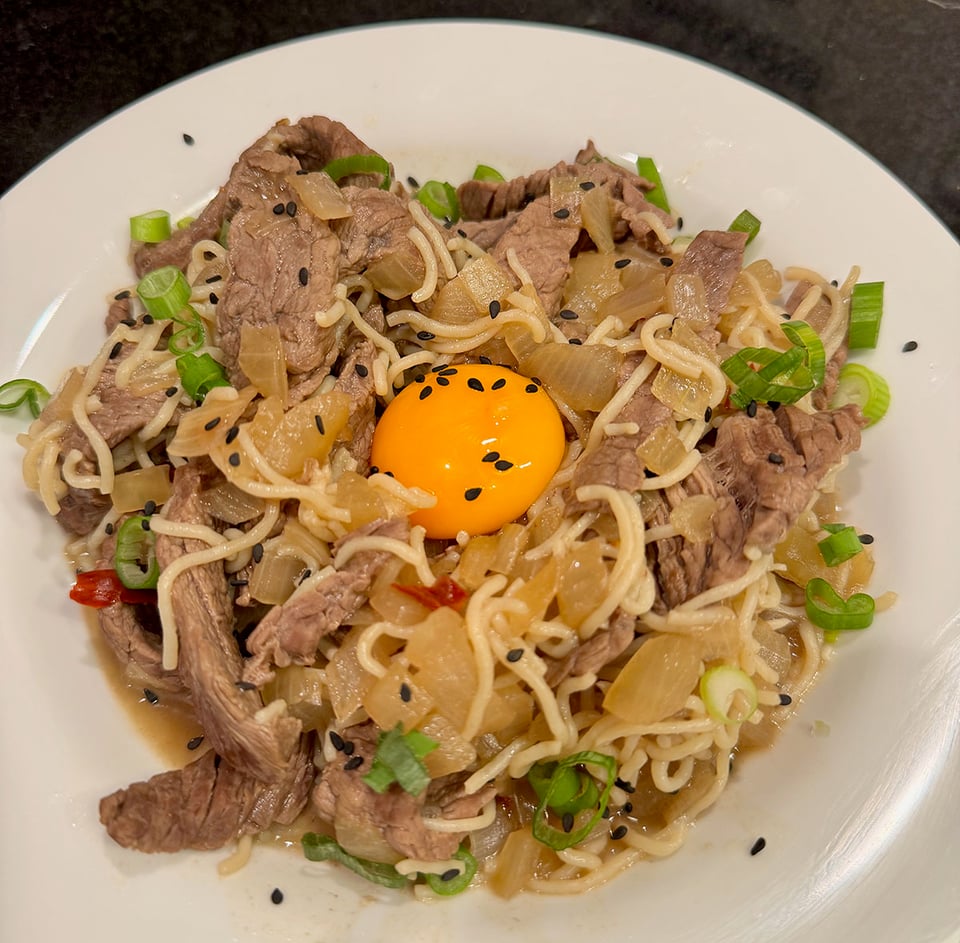
Pozole Japonesa

👇 FUTURE SHOCK 👇
In other news, I’m drafting my own cookbook. More about that in future issues.
🔗 Assorted Links
- 📝 D.C.’s Attorney General is suing Maryland drivers who rack up unpaid traffic fines: Previously there was no way for D.C. to hold nonresidents accountable. (PoPville)
- 📝 D.C. aims to crack down on credit card swipe fees: Every time you pay by card, the store has to pay up to 3% to credit card processors. A bill aims to lower that. (Axios) In a previous issue, I lamented that these fees regressively accrue as credit card rewards to wealthier people. (New York Times op-ed)
- 📝 Some DCA frequent flyers now avoid it after deadly crash. (Axios)
- 📝 DC’s Fancy New European Scooters Have an Anti-DUI Feature: Estonian company Hopp has entered DC's crowded micromobility space with vehicles that boast a pothole-detecting camera. (Washingtonian)
- 📝 A two-year-old building will be demolished: Mexican restaurant Al Fresco only survived a few months after it opened its own steel frame, one-story building in Adams Morgan in 2023. (PoPville)
- 📝 D.C.'s cherry blossoms will hit peak bloom in late March (Axios)
- 📝 New Commanders Stadium on RFK site could mean the end of tailgating: Devoting acres to boozing on your bumper eight days a year is not a good use of scare urban land. (WUSA9)
- 📝 Federal workers frustrated about ongoing Navy Yard traffic: 17,000 employees returned to work in person at the Navy Yard brining heavy traffic to those who choose to drive. (WUSA9)
- 📝 Should low-income drivers pay less when they break the law? D.C. will pilot a program offering low-income drivers a 50% discount on one camera ticket. (The 51st)
- 📝 How Americans Came to Love Eggs. It wasn’t until the 20th century that eggs became a common in American kitchens and modern industrial egg production began.(The Atlantic)
- 📝 The ‘Gulf of America’ Is an Admission of Defeat. Bodies of water are typically named by dominant nations not after themselves, but after the subordinate nations on the other side. (The Atlantic)
- 📝 How Progressives Froze the American Dream. 🔥Hot take🔥: Jane Jacobs bears some responsibility for the housing affordability crisis. (The Atlantic)
- 📝 Britains’s Government Considers Land-Use Reform. All development since 1947 has been discretionary, creating a housing shortage much deeper than in other countries. (The Economist)
- 📝 Forget the Mardi Gras Beads. This Year’s Best Catch Is a Cookbook: One of the newest and most unusual gifts is a collection of South Asian family recipes. (New York Times)
📊 The Numbers
… of the avocados Americans consume are imported form Mexico. Avocados are the nation’s top import in terms of value.
- Cited in: 📝 What an ‘America First’ Diet Would Really Look Like: The notion that the U.S. could produce all of its food domestically is nice, but very far from reality. (The Atlantic)
Average number of hours Federal employees work in a given week, higher than employees at for-profit firms.
- Source: 📊 American Community Survey
- Cited in: 📝 Are federal workers lazy? Let’s look at the data (Washington Post)
📨 Letters to the Editor
Replying to my frustration with people glued to their phones at the dinner table:
I have started seeing my parents doing the whole phone staring at the dinner table too. Meanwhile I am trying to move away from it myself. —A reader, Washington, D.C.
Another reader recognized socarrat, the Catalan word for the crisping of the rice on the bottom of the paella:
In Cajun culture, the crispy bits of rice stuck to the pot are the “graton” which is also the word for cracklins. 😋 —Jude Graham, Honolulu
🎬 The Wrap
Harry Truman humorously demanded a “one-handed economist,” exhausted with the dismal science’s penchant for illustrating trade-offs, i.e. on the one hand X, on the other hand Y.
Life is full of trade-offs and recognizing that tosses a wet blanket onto anyone seeking a pithy and tidy answer.
We inhabit a complex world in which events are often inexplicable or random. People find conspiracy theories compelling because they offer simplistic answers. For many people, the certainty of a simple falsehood is more comforting than a knotty explanation with multiple factors and variables.
I’ve previously discussed my suspicion of nostalgia and my rejection of pandemic amnesia. I recognize some positive outcomes of the pandemic, but they feel trivial compared to the excess deaths, long-covid, learning loss, etc. Olga Khazan in the Atlantic explores why people view hard times in the past— a war, poverty, a disease, oppression, a pandemic— with rose colored glasses:
Nostalgia for terrible things may sound absurd, but many people experience it, for reasons that speak to the way people make meaning of their lives. The central reason for this phenomenon, according to researchers who study nostalgia, is that humans look to our past selves to make sense of our present. Reflecting on the challenging times we’ve endured provides significance and edification to a life that can otherwise seem pointlessly difficult. The past was tough, we think, but we survived it, so we must be tough too.
